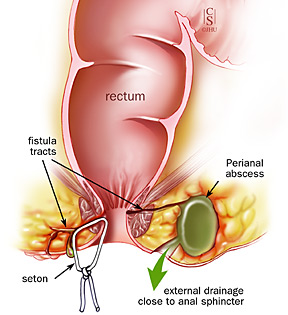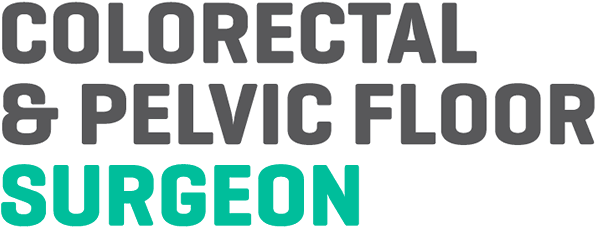- Abscess Incision and Drainage
- Advancement Flap Repair
- Anal Bulking
- Anal Tattooing
- Botulinum Toxin Injection
- Colectomy
- Delorme’s Procedure
- ELAPE Procedure
- Femoral Hernia Repair
- Fistulotomy
- Haemorrhoidectomy
- HALO-RAR Procedure
- Inguinal Hernia Repair
- Intersphincteric APR
- Lateral Internal Sphincterotomy
- Low Anterior Resection
- Pelvic Organ Prolapse
- Perineal Rectosigmoidectomy
- Rectoanal Repair
- Rubber Band Ligation
- Stapled Haemorrhoidopexy
- Stoma Creation
- Stoma Reversal
- Transanal Rectocoele Repair
- Umbilical Hernia Repair
Abscess Incision and Drainage
An anorectal abscess that is painful or associated with signs of infection is treated surgically by an open incision and drainage procedure under general anaesthesia. The pus is drained from the abscess by making an opening through the overlying skin and placing a dressing in the cavity. You will have the opportunity to discuss fully all the benefits and risks of the operation with me before signing your consent form.

No special bowel preparation is needed the day before surgery. However, you will need to fast from midnight the night before if your operation is to take place in the morning, or from 7 am if it is scheduled for the afternoon.
Incision and drainage of an anorectal abscess is done under general anaesthesia. Following your procedure, you will need to stay in hospital until the next day for the dressing to be changed. Most people only need to stay one night. You should not drive after your surgery, so a friend or relative will need to take you home. It is best to take it easy in the 24 hours following your surgery; thereafter, most people can resume their normal activities.
You can expect minor bleeding after your surgery, and a sanitary towel changed twice daily will help to prevent staining of underwear. It is normal to notice bleeding after you have opened your bowels, but if the amount of blood is more than a couple of teaspoons a day, please let my office know.
It is important to keep your bowel movements soft and regular after this type of surgery. Eat foods high in fibre and drink plenty of water (6–8 glasses a day). It is also a good idea to take laxatives after your procedure to prevent constipation. Analgesia and laxatives will be given to you to take home. Occasionally, antibiotics will also be prescribed to take home.
Some patients need daily dressings after surgery, and this will be organised with a community district nurse or your general practitioner.
Avoid use of soaps and chemicals on the wound. If daily dressings are required, the district nurse will advise about washing. Generally, use water to wash the wound twice a day and after every bowel action.
Exactly when patients can resume driving after this type of surgery is determined on a case-by-case basis and will be discussed with you after your surgery. This is usually 2 weeks. Please let your insurance company know when you have been given the all-clear to resume driving.
A follow-up appointment in the clinic will be arranged for 1-2 weeks after your surgery to check your wound and discuss any further management if required.

